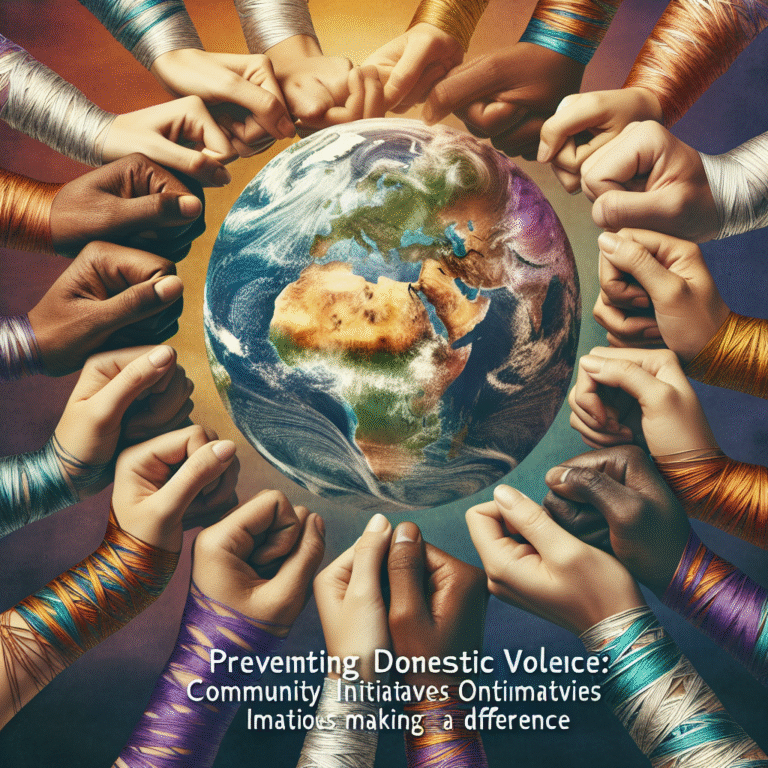
Introduction
When we think of crime scenes, vivid images often flood our minds: police tape, investigators collecting DNA samples, and the methodical gathering of evidence. However, there’s an essential layer to the justice system that often goes unnoticed—the role of forensic psychologists. Beyond the Crime Scene: The Role of Forensic Psychologists in Modern Justice encapsulates not just their presence in investigative processes but also how they influence legal outcomes, support victims, and aid in rehabilitation.
Understanding the contributions of forensic psychologists is crucial in today’s world where psychological factors increasingly come into play regarding crime and justice. This article aims to delve deeply into their multifaceted roles, showcasing their significant impact on crime-solving and justice delivery.
The Foundation: What is Forensic Psychology?
Forensic psychology merges psychology with the legal system. It involves applying psychological principles to legal matters, ranging from assessing defendants’ mental states to providing expert testimony in court. Here’s a breakdown of what makes forensic psychology distinct:
Definition and Scope
- Assessment: Forensic psychologists evaluate individuals involved in criminal cases, including suspects, victims, and witnesses. These assessments often address mental competency and the risk of reoffending.
- Expert Testimony: They serve as expert witnesses in court, helping juries and judges understand psychological factors influencing a case.
- Consultation: Forensic psychologists work with law enforcement agencies to develop criminal profiles, which assist in catching offenders.
The Core Roles of Forensic Psychologists
1. Assessment and Evaluation
Forensic psychologists are often tasked with evaluating a defendant’s mental state at the time of the crime. Their assessments can be critical in determining legal outcomes.
Case Study: The Insanity Defense
In the case of John Hinckley Jr., who attempted to assassinate President Ronald Reagan, forensic psychologists played a pivotal role in assessing his mental health. Their evaluations led to the conclusion that he was not criminally responsible due to mental illness, resulting in his confinement to a psychiatric hospital instead of prison. This highlighted the critical intersection of mental health and legal responsibility.
2. Risk Assessment
Forensic psychologists also conduct risk assessments to determine the likelihood of reoffending. These evaluations are crucial for determining sentencing and treatment options.
Case Study: The Static-99
The Static-99 is a widely used risk assessment tool among forensic psychologists. It assesses male sexual offenders’ risk of recidivism, combining various factors such as criminal history and demographic information. Its effectiveness has been demonstrated in numerous studies that show consistent prediction of reoffending behavior.
3. Expert Testimony
In trials, forensic psychologists regularly take the stand as expert witnesses. Their testimony can clarify complex psychological concepts for judges and juries, influencing critical decisions.
Case Study: The Mercedez-Benz Case
In a notable case, a forensic psychologist was called to testify about a defendant’s personality disorder. Their insights helped the jury understand the defendant’s behavior, ultimately impacting the case’s outcome. The role of expert testimony in bringing nuanced understanding to the courtroom exemplifies Beyond the Crime Scene: The Role of Forensic Psychologists in Modern Justice.
4. Criminal Profiling
Forensic psychologists aid law enforcement in developing criminal profiles that give insight into the potential characteristics of a suspect based on the crime’s nature.
Case Study: The BAU and Serial Offenders
The FBI’s Behavioral Analysis Unit (BAU) utilizes forensic psychologists to create profiles of serial offenders. Their work helped capture high-profile criminals like the Green River Killer, showcasing how psychological insights can guide investigative strategies beyond the crime scene.
Enhancing Legal Processes: Training and Development
Forensic psychologists undergo extensive training to prepare them for these critical roles. Advanced degrees, internships, and continued education ensure they remain informed about both psychological principles and legal standards.
Curriculum Elements
- Criminal Law: Understanding the legal context and implications of psychological evaluations.
- Psychopathology: Deep knowledge of mental disorders relevant to criminal behavior.
- Ethics in Psychology: Training in ethical standards to prevent misuse of psychological assessments in legal settings.
The Impact of Forensic Psychology on Victims and the Community
Forensic psychologists do not only work with offenders; their role extends to providing support and resources for victims. They help victims cope with trauma resulting from criminal acts and often serve as advocates in legal contexts.
Counseling and Support
Forensic psychologists offer therapy to victims, helping them navigate the emotional aftermath of crimes. By addressing psychological harm, they contribute to the healing process.
Community Education
Public workshops can educate communities on the psychological aspects of crime, prevention strategies, and the importance of mental health. This proactive approach fosters a safer environment and promotes understanding.
The Future of Forensic Psychology
Through technological advancements and evolving legal frameworks, the role of forensic psychologists will continue to grow. New methodologies and tools, such as virtual reality simulations for training, may enhance their effectiveness in both assessments and counseling.
Emerging Technologies
- AI in Profiling: Future integration of AI tools will refine criminal profiling techniques, allowing for more accurate predictions and preventive measures.
- Teletherapy for Victims: Increasing reliance on telehealth will improve accessibility for victims seeking counseling.
Challenges Ahead
Despite its importance, the field of forensic psychology faces several challenges, including:
- Public Misunderstanding: Stereotypes and misconceptions about mental illness can skew perceptions and outcomes within the justice system.
- Resource Limitations: Forensic psychologists often work under tight budgets, limiting the scope of their assessments and interventions.
Conclusion
Beyond the Crime Scene: The Role of Forensic Psychologists in Modern Justice is not merely about their involvement in the courtroom; it encapsulates their profound influence across multiple facets of the justice system. From evaluating mental competency to providing support for victims, their roles are expansive and intricate.
As individuals interested in justice, advocacy, or psychology, there’s a compelling urgency to appreciate the significance of forensic psychologists in contemporary society. Their work helps create a more informed, equitable legal system, reinforcing the necessity of psychological insights in the quest for justice.
Actionable Insights
- Education and Training: If you’re considering a career in forensic psychology, ensure your education encompasses both aspects of psychology and law.
- Continued Awareness: Engage in community discussions around mental health and crime to foster understanding and reduce stigma.
- Policy Advocacy: Support policies that enhance mental health services in the justice system, ensuring comprehensive care for both victims and offenders.
FAQs
1. What is the primary role of a forensic psychologist?
Forensic psychologists apply psychological principles to legal issues, which can include assessing mental competence, providing expert testimony, and developing criminal profiles.
2. How do forensic psychologists assess risk?
They conduct thorough evaluations based on psychological theories and tools, like the Static-99, which predicts the risk of reoffending among sexual offenders.
3. Can forensic psychologists help victims of crime?
Yes, they often provide counseling services to help victims cope with trauma and navigate the legal system.
4. What qualifications do forensic psychologists need?
Forensic psychologists typically hold a doctoral degree in psychology, complete relevant internships, and obtain licensure to practice.
5. How does forensic psychology intersect with criminal law?
Forensic psychology provides insights into the mental states and behaviors of individuals involved in legal matters, offering critical information that can influence legal decisions and outcomes.
The path to incorporating psychological insights into law has just begun, and understanding roles like forensic psychology is pivotal for holistic justice.


















